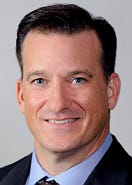Kaseya Expands IT Complete Platform with Acquisition of IT GlueKaseya Expands IT Complete Platform with Acquisition of IT Glue
The software company vows to keep IT Glue a separate unit and support competing MSP management platforms.

Just months after acquiring RapidFire and Spanning, Kaseya is at again. The IT infrastructure management software provider on Wednesday announced that it has acquired IT Glue, the market leader in IT documentation software.
The latest acquisition builds on Kaseya’s vision of creating the largest and most comprehensive management platform for MSPs. The company’s overriding goal is to help MSPs achieve two key objectives: Generate more revenue and run more efficiently. The addition of IT Glue to Kaseya’s IT Complete platform addresses the latter by giving the company control over the most popular documentation tool used by MSP technicians today.
Acquiring IT Glue puts Kaseya on a path to generate more than $300 million in revenue in 2019 and employ 1,100 people.
Users of IT Glue tools, regardless of which PSA or RMM platform they use, should not expect radical changes to how IT Glue operates, says Kaseya CEO Fred Voccola. He plans on running IT Glue, which is used by more than 5,000 MSPs in 30 countries, as a separate, standalone entity. It will continue to develop integrations with other PSA companies and be a true industry partner, says Voccola.

Kaseya’s Fred Voccola
“[IT Glue] isn’t pitting us head-to-head with ConnectWise or Autotask/Datto or SolarWinds or Continuum of Veeam or anybody. What it does is give us a great way to work with them to the benefit of our customers,” says Vocolla.
In other words, you could be an MSP and use Datto for backup, ConnectWise as your PSA, SolarWinds for your RMM, Continuum for managed security and IT Glue with all of these products and expect great integration and functionality, Voccola adds. And you will be able to do so well into the future, at least as far as Kaseya is concerned.
That said, Voccola doesn’t doubt for a minute that one or more of his rivals will see the acquisition differently. But their options for now are somewhat limited.
“IT Glue is a market-leading product. It’s four years ahead of anything else that’s out there. I wouldn’t be surprised if [some rivals] buy a company or try and build a product of their own. I also wouldn’t be surprised if they say, ‘Great, this is a part of the platform of what an MSP needs and we don’t need to own it; we will just continue to work with IT Glue,’” Voccola says.
One change users of IT Glue will note is the departure of company founder and former MSP Chris Day. Day founded IT Glue in 2013 with a mission to “help MSPs and IT departments maximize the efficiency, transparency and consistency of their teams.” Having achieved that aim, Voccola says, Day is embarking on a new mission, which he expects to make news soon.
For its part, Kaseya will continue to develop and invest in an integrated platform with a common interface that can manage everything a technician needs to do in order to keep any business of any size operating at full capacity. This includes managing everything from an endpoint to a backup to a security service and more.
While the acquisition of IT Glue is an acknowledgement that the MSP world is a multivendor environment, it’s clear that Kaseya, as well as its competitors, want a bigger piece of the growing MSP marketplace.
The total addressable market for MSPs that serve SMB organizations, Kaseya estimates, is roughly $2 billion. The rate of spending on IT goods and services among these SMBs is growing at roughly six times that of GDP. The jump in spending, which Voccola says started around 2010, mirrors what occurred among enterprise companies in the mid 1990s and early 2000s.
Today, Voccola says, a typical dental practice, for example, is leveraging more digital innovation than a major Fortune 500 company did a mere decade or two ago. Though the complexity is only getting greater, the cost to run the infrastructure required to support all this digital transformation is …
… typically less $1,000 per month, he adds.
Despite all the changes in the industry, the one thing that has not changed is the economics of IT management.
“It will never make sense for a 14-person company to hire two full-time IT people at a cost of $250,000 a year to manage the IT of the other 12 people at the company. That math will never change,” says Voccola.
This is the reason why so many people are eager to start, buy and develop for MSPs.
“We believe we have a massive competitive advantage. We can offer all of the functionality that an MSP wants at a fraction of the cost to those who went out and bought certain functionality from two, three, four or five different vendors. No one has the security lineup that we have, the compliance lineup that we have, the BDR, the endpoint management, the network monitoring, documentation, PSA — you name it. Cloud/web management, public cloud, price management — all that,” says Voccola.
He commits that Kaseya will stay 18 months ahead of its competitors with additional acquisitions and internal development. And, he adds, Kaseya will stay open and integrate with anyone because, as he puts it, going with a rival product in certain instances simply makes good business sense.
Whether he can pull off such bold claims remains to be seen. But it does suggest 2019 will be a very interesting year.
Read more about:
MSPsAbout the Author
You May Also Like


